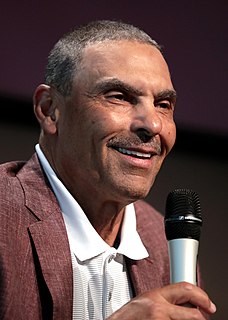A Quote by Robert Redford
You should prepare when you go to a public event to be public. That's when I will sign autographs. But not when you're going about your normal business.
Related Quotes
[Veterans] have been treated very badly.That includes - veterans' choice so veterans can either attend a public V.A. facility or if they have to wait online like they've been doing, sometimes for as much as seven days and then still not get proper care, they'll go to a private medical center or they'll go to a private or public or something, they will go outside .they'll go to a private doctor, they'll go to a private hospital, they'll go to a public hospital. We're going to get them care and we're going to pay for their - that care.
You have an obligation as a player - as an athlete at any level - and it doesn't matter what sport it is. When you sign on, you sign on. You prepare that week to go win. I don't care about your schedule, or how many people got hurt - it doesn't matter. You owe it to the people in the building and guys in the huddle to prepare yourself to win.
I basically see two reasons for a going public: Glencore gets access to more money. It is a way of funding your business and to finance growth. Plus: You have more liquid shares. It is easier to leave the company and redeem your shares. The 'going public' may also be an exit strategy for the top management.
I remember, once I was going through Nice airport with Roger Moore, and these kids came up and asked for our autographs. Afterwards, Roger said, 'It must be very strange for you. I'm an actor, and signing autographs is part of what I do. But you're a public figure who people don't really know.' He was right.
How you prepare for a role is entirely your business in my point of view. There is little enough mystery anymore left in the world in the part of our profession, which should be clouded in mystery because it isn't in the public. You don't want the magician to show his tricks or how he did them do you? So I do think that is a very private thing that we actors should protect ourselves from.




































